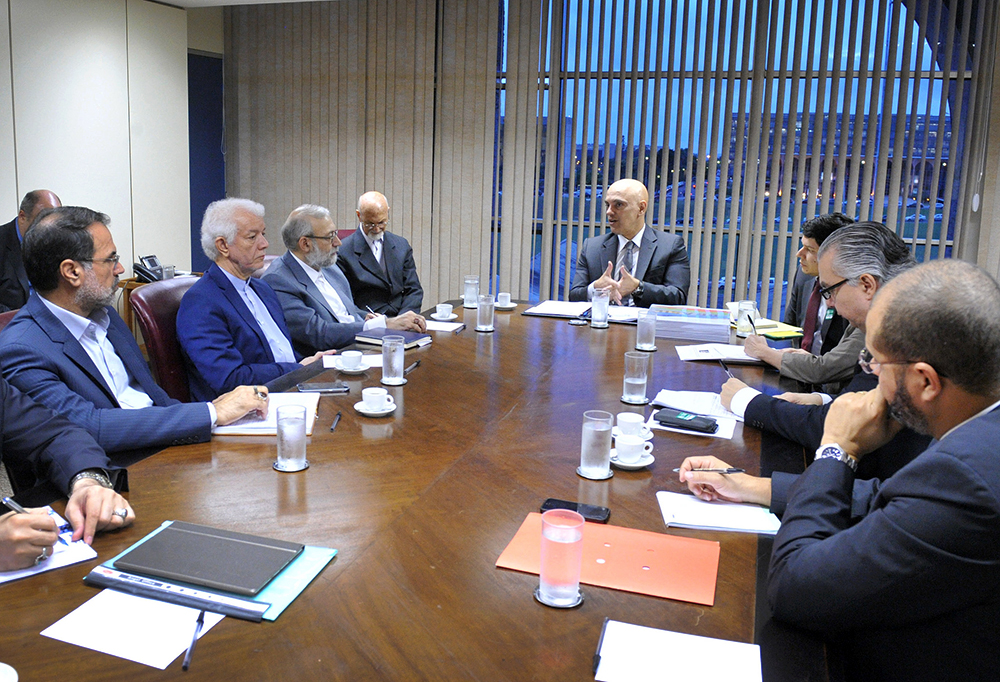Justice Minister meets with Mohammad Larijani
Meeting with highest Iranian human rights official took place behind closed doors

Justice Minister Alexandre de Moraes met on Tuesday, October 4, with Mohammad Larijani, head of Iran’s High Council for Human Rights – the country’s leading government human rights body. Larijani’s schedule in Brazil was supposed to include a meeting with Human Rights Secretary Flavia Piovesan, but this meeting ended up not taking place. Nor was any representative of the Human Rights Secretariat present at the meeting in the Ministry of Justice.
No public statement on the reason for the visit or on the issues addressed at the meeting was released by either the Ministry of Justice or the Ministry of Foreign Relations. Larijani met with Acting Foreign Minister Marcos Galvão on Monday, October 3, after which he spoke at the Rio Branco Institute, a diplomatic academy in Brasília.
According to Camila Asano, coordinator of the Foreign Policy program at Conectas, the visit occurred at a time when the two countries are developing their trade relations. “Pragmatism cannot get in the way of human rights. Bilateral dialogue on the topic is important, but it must take place against a backdrop of transparency and always respect the Constitution, which determines the prevalence of human rights in foreign relations,” she said.
Read more
Asano also pointed out that Larijani’s visit occurred just weeks before the vote, in the UN General Assembly, on a resolution on the human rights situation in Iran. Brazil has been abstaining since 2001, with the exception of 2003 – when it voted in favor of the resolution. Asano said the lack of transparency at the meetings raises questions over whether Brazil will maintain or change – with a vote against – its long-held position on this matter.






